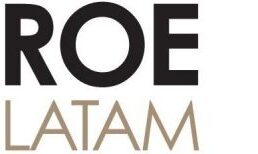
FCPA and Anti-Terrorism Act: The New Crossroads of Compliance Risk in Latin America
Inspired by the insights of Matteson Ellis and Leah Moushey, published in Law360 on July 17, 2025.
Recent policy shifts in the U.S. Department of Justice reveal a strategic evolution in enforcement: the Foreign Corrupt Practices Act (FCPA) and the Anti-Terrorism Act (ATA) are being applied in tandem to pursue corruption and transnational crime, especially in jurisdictions with cartel-linked governance structures.
This convergence dramatically raises compliance risk for companies operating in Latin America, where government and organized crime are often entangled.
🔍 Dual Exposure: When Corruption Enables Criminal Networks
The FCPA prohibits bribery of foreign officials, while the ATA targets material support to designated foreign terrorist organizations (FTOs). Now, U.S. authorities are using both statutes to investigate companies that interact—directly or indirectly—with transnational criminal organizations (TCOs), especially those newly labeled as FTOs.
⚠️ Five Risk Scenarios in Latin America
Here are real-world examples tailored to regional operations:
1. Weak Controls and Misclassified Transactions
If a logistics company in Honduras mislabels facilitation payments to corrupt customs officials, and those officials are linked to an FTO-backed network, both accounting violations (FCPA) and support-related liability (ATA) may follow.
2. Public Officials with TCO Ties
In zones like Sinaloa in Mexico, or Chocó in Colombia, local mayors and council members may have direct ties to cartels. If a company pays for “expedited permits” or “local security coordination,” it could be inadvertently funding both bribery and criminal infrastructure—falling squarely under FCPA and ATA scrutiny.
3. Shell Companies as Payment Vehicles
A tech vendor in Panama bills for cybersecurity services never rendered. The shell company routes funds to cartel affiliates. If government actors are involved and the cartel is FTO-designated, compliance risks now span bribery, terrorism, and financial fraud.
4. Bribes That Enable Illicit Trade
Suppose a shipping company pays port officials in Ecuador to expedite containers. If those containers include fentanyl precursors destined for cartel routes, the company might face investigation for enabling narcotrafficking via bribery and for materially supporting an FTO’s operations.
5. SOE Corruption Under New Light
Latin American state-owned enterprises—Pemex, Ecopetrol, or electricity commissions—are well-known FCPA risk zones. If officials inside these entities are now linked to cartels labeled as FTOs, the liability expands from corruption to anti-terrorism violations.
📈 Why This Matters Now
In 2025, compliance professionals must understand that corruption can now trigger terrorism-linked enforcement. What previously belonged to the realm of bribery prevention now includes criminal and national security dimensions.
This dual framework brings new urgency to:
Enhanced third-party screening
Beneficial ownership tracing
Risk-based geographic mapping
Real-time policy updates across departments
🧭 Strategic Takeaways for ROE Latam Clients
As risk dimensions evolve, compliance must become interdisciplinary. Latin American companies should consider:
Integrating anti-terrorism analysis into anti-bribery due diligence
Mapping FTO activity against supply chains and government interactions
Ensuring records and internal controls are robust enough to catch both bribery and cartel leakage
Training legal and operational teams to detect multi-layered red flags—especially when engaging with SOEs or rural government offices
✅ Final Thought
Compliance in Latin America has always been complex. Now, it must be comprehensive. The FCPA is no longer a standalone concern—it’s part of a broader matrix involving the ATA, money laundering statutes, sanctions enforcement, and even human rights frameworks.
At ROE Latam, we help clients not only keep pace with these changes but anticipate them. The convergence of criminal and corruption enforcement requires strategy, agility, and deeper regional awareness than ever before.
Feel free to write us at online@roelatam.com
Related links:
- Regional Anti-Corruption Compliance Takes Center Stage in Latin America
- Strengthening Anti-Bribery Systems: ROE Latam Delivers ISO 37001 Internal Audit Training to CORSAIN El Salvador
- Internal Investigations: A Guide to Mitigating Corporate Risks and Ensuring Compliance
- U.S. Treasury Cracks Down on Mexican Cartel Oil Smuggling: Critical Insights for Energy Companies
- 6 Essential Requirements of the EU Whistleblowing Directive: A Compliance Guide for Organizations
- Mexico’s Corruption Crisis Deepens: 2024 CPI Reveals Historic Low & Global Implications
- The Essential Guide to KYC Regulations in Mexico: What Real Estate Professionals, Financial Institutions, and Buyers Must Know
- ROE Latam Capacita a la Academia Nacional de Seguridad Pública de El Salvador en la Implementación de la ISO 37001
